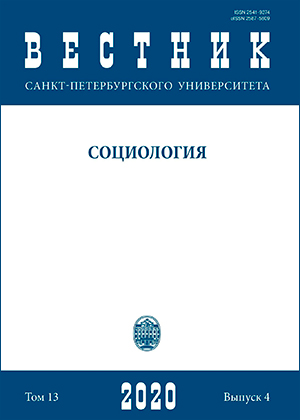Teachers’ assessments of the changes in higher education in Russia: Transformation or stagnation?
DOI:
https://doi.org/10.21638/spbu12.2020.408Abstract
The article presents the assessments by Russian university teachers of the changes that have resulted from the reform of higher education. The assessment of the result of higher education reform was built through the optics of the micro-level studying and the bottom-top strategy for summarizing the results. The authors used a list of questions about teachers’ assessment of the conditions for academic mobility, the success of the transition to a two-level system, the perception of competition in the academic market, the possibility of scientific work and academic mobility, and also the degree and type of participation in the development of master’s degree programs. The results were based on data obtained in the framework of the project
“The Russian Masters’ early growth”, a recipient of the Vladimir Potanin Foundation scholarship program. The study showed that university teachers perceived the reform of higher education rather negatively, they noted an increase in useless paperwork, a low level of academic mobility, lack of academic freedom, and difficulty in conducting scientific research. Competition between teachers was assessed as low, and respondents also marked that the academic labor market in Russia is not well-established. The authors concluded that the tasks of higher education reform have not been solved, and on the part of teachers there is an institutional distrust of the ongoing reforms.
Keywords:
higher education reform in Russia, teachers, Bologna process, institutional distrust
Downloads
References
References
Downloads
Published
How to Cite
Issue
Section
License
Articles of "Vestnik of Saint Petersburg University. Sociology" are open access distributed under the terms of the License Agreement with Saint Petersburg State University, which permits to the authors unrestricted distribution and self-archiving free of charge.




